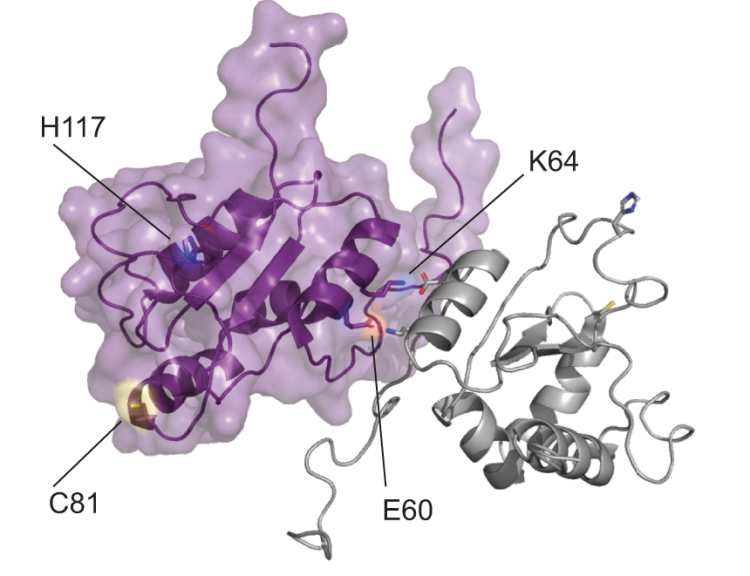From goblet cells to gut health: the role of AGR2 and mucus
Goblet cells are specialized cells in the intestine that are crucial for maintaining a healthy gut environment. A new study by the team of Prof. Sophie Janssens and the lab of Prof. Savvas Savvides (VIB-UGent Center for Inflammation Research), together with the team of Prof. Sven Eyckerman (VIB-UGent Center for Medical Biotechnology) reveals the important role of the protein AGR2 in regulating the intestinal mucus layer. Their work appears in The EMBO Journal.
A healthy intestinal ecosystem
The human intestine is a bustling ecosystem teeming with diverse cell types, each with its unique role in maintaining the delicate balance essential for overall well-being. Goblet cells, in particular, play a vital role in safeguarding the intestinal environment by producing and secreting mucins, the main components of mucus. This mucus layer acts as a protective barrier that shields the intestinal lining from harmful pathogens and ensures a harmonious relationship with the trillions of microbes that call the gut home.
Dr. Eva Cloots (VIB-UGent), first author of the study: "We knew that the protein AGR2 was involved in the proper folding and secretion of mucin proteins within goblet cells, but the exact mechanism through which AGR2 does this were unknown. We decided to focus on the interplay between AGR2 and IRE1β, a sensor that responds to cellular stress caused by mis- or unfolded proteins."
And that turned out to be a key insight. The team discovered that AGR2 acts as a key regulator of IRE1β, modulating its activity and, in turn, this affects the production and secretion of mucins by goblet cells. By binding to IRE1β, AGR2 'tunes' the cellular stress response, ensuring that the delicate balance of mucin production is maintained.

Prof. Sophie Janssens (left) and Dr. Eva Cloots (right).
Mucus and mutations
Mutations in the AGR2 protein have recently been identified and are linked with inflammatory bowel disease-like symptoms. The researchers show how such a mutated AGR2 fails to bind with IRE1β, which leads to the stress sensor being 'on' the whole time. As a result, mucin (and mucus) production and maintenance suffer and gut inflammation follows.
Prof. Sophie Janssens (VIB-UGent): "Understanding the effects of mutations in AGR2 might lead to new avenues for understanding and potentially treating conditions characterized by gut inflammation. Our work, however, also provides basic knowledge on the intricate interplay between cellular stress responses and the maintenance of tissue homeostasis."
With AGR2 revealed as a missing puzzle piece to ensure healthy intestinal mucus, the researchers are keen to pursue open questions about the interactions between AGR2 and IRE1β and their importance proper folding of mucin proteins.

Structure of the AGR2 protein, highlighting locations known to be affected by specific mutations.
This work was supported by VIB, FWO, UGent, and the Medical Research Council DTP.
Publication
Cloots et al. Activation of goblet-cell stress sensor IRE1β is controlled by the mucin chaperone AGR2. The EMBO Journal, 2024.
Source
